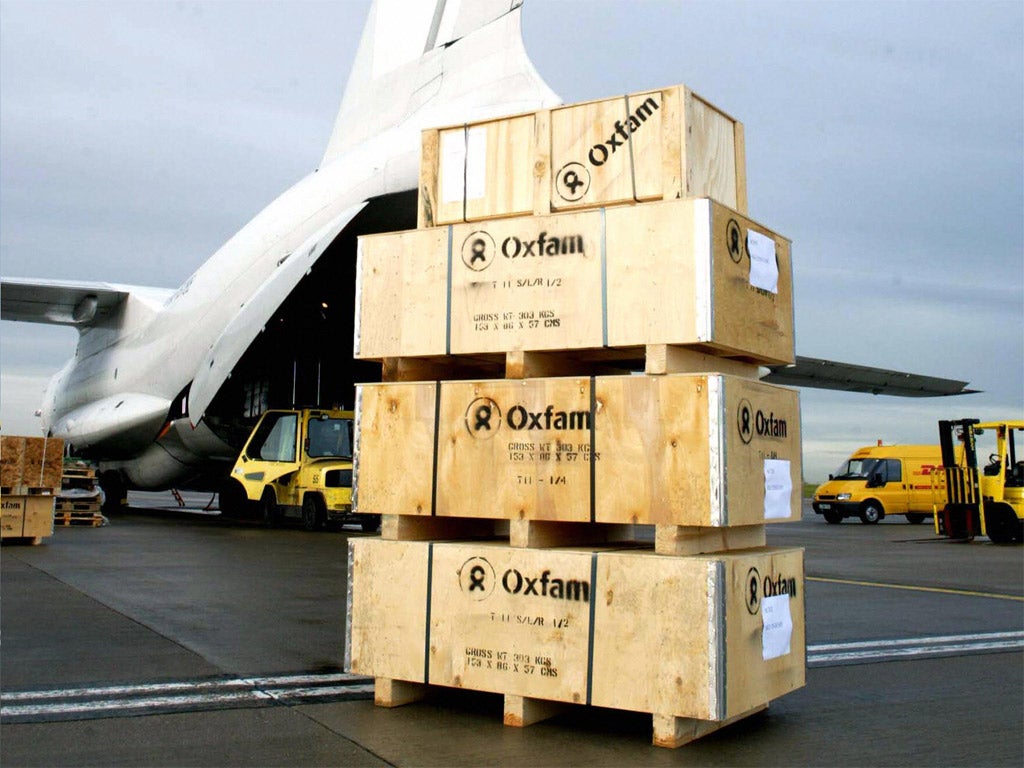Gift Aid giveaway is costing the taxpayer £940m
Report reveals that charities getting less while cost to public purse has risen

The Gift Aid system designed to encourage charitable giving is costing the taxpayer £940m a year in refunds to companies and private individuals – but charities themselves are receiving less money from the mechanism than they did a decade ago.
The public sector spending watchdog, the National Audit Office (NAO), warns today that Gift Aid cannot be described as “value for money” after it found that the total sum received by charities has dropped by £20m to £1.04bn since 2000, while the cost to the public purse increased almost tenfold.
The NAO report into the working of Gift Aid sharply criticised HM Revenue & Customs (HMRC) for collecting insufficient data, and warned there was evidence that changes to corporate donations may have resulted in a reduction of the amount charities receive from firms.
The study warned that HMRC has no accurate estimate of the cost of abuse of the Gift Aid system, adding that its £170m assessment of the annual loss to the taxpayer through fraud or avoidance was “crude” and potentially understated the level.
Margaret Hodge, the Labour chairwoman of the Commons public accounts committee, said the report underlined concerns that tax reliefs were not meeting their intended purpose. She told The Independent: “This report makes pretty depressing reading. It is an extraordinary finding that the financial benefit to donors from Gift Aid is almost as great as the benefit to charities themselves.”
Gift Aid remains a valuable source of income for Britain’s charities, accounting for about two per cent of all charitable giving.
But the NAO said that changes brought into the system in 2000 designed to simplify charitable giving through taxation – and thereby increase donations – had had the effect of placing “third sector” income from Gift Aid in a decade-long freeze.
In 1999-2000, the amount of relief received by charities stood at £1.06bn. But the income of charities from the system last year stood at £1.04bn.
The plateauing of Gift Aid comes at a hard time for Britain’s charities. Those with an income of £1m or less have seen an 11 per cent drop in income over the last five years while bigger fundraisers have also hit hard times. Oxfam last month announced a shift in strategy which will involve the loss of 125 jobs after its income fell by nearly £18m to £368m.
At the same time, the amount of money either being foregone from public funds or reclaimed by taxpayers to facilitate Gift Aid has ballooned from £130m in 1999-2000 to £940m last year – just £100m less than the sum received by charities.
The NAO said it had concerns that the system, as it stands, means both charities and the taxpayer were losing out. It said: “There is insufficient evidence that the government has actively encouraged take-up of reliefs so that those charities which are entitled to them get the intended benefits.”
Charities said the study did not mean that the Gift Aid system was broken but said much could be done to improve its efficiency. The Charities Aid Foundation (CAF), which advises fundraising bodies, said the proportion of donations using Gift Aid fell to 39 per cent in 2010-2011, despite rising in previous years.
Rhodri Davies, CAF’s policy manager, said: “It is still a fairly clunky system of filling out declarations which results in quite a lot of additional admin work for charities. We need a 21st century system rather than one from the 19th.”
The HMRC said it was working to overhaul the Gift Aid system as well as combating fraud, doubling the number of staff in its compliance unit. A spokesman said: “We have recently consulted with the sector on modernising Gift Aid and we work closely with charities to make it as easy as possible for them to claim tax relief.”
Q&A: How it works
Q. What’s in it for charities?
A. When a UK taxpayer gives an amount of money to a charity, they have already paid income tax on that money when they earned it. But because charities are generally exempt from tax, they can claim the amount of tax the donor paid on their sum back from HMRC – this is called Gift Aid. Charities, such as Cancer Research UK, say the scheme means “so much more money can be raised at no extra cost”.
Q. What’s in it for charity donors?
A. Aside from peace of mind, higher-rate taxpayers can benefit. Those paying the higher 40 per cent income tax rates can claim 20 per cent of the total “gross” value of their donation back from HMRC (this is because they are allowed to claim back to difference between that top tax rate and the basic rate, which is 20 per cent). So, if person taxed at 40 per cent donates £100 to charity, he or she can reclaim £25.
Q. What’s in it for big business?
A. Companies can claim tax relief for qualifying donations paid to charities, setting the amount against profits for corporation tax. But gift aid donations made to charities by companies are paid gross and so, unlike individual donations, no tax is repayable to charities.
Sam Masters
Subscribe to Independent Premium to bookmark this article
Want to bookmark your favourite articles and stories to read or reference later? Start your Independent Premium subscription today.

Join our commenting forum
Join thought-provoking conversations, follow other Independent readers and see their replies